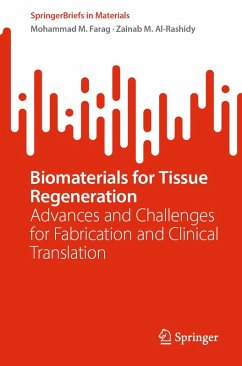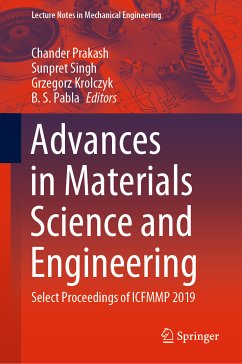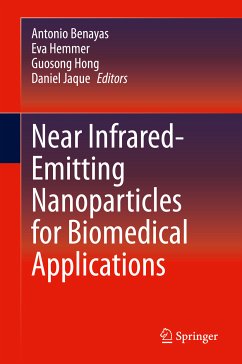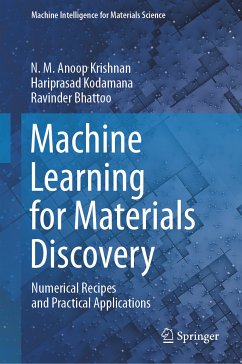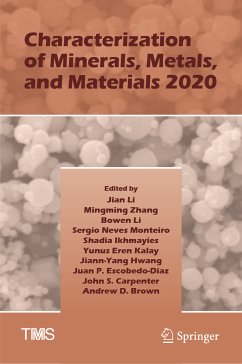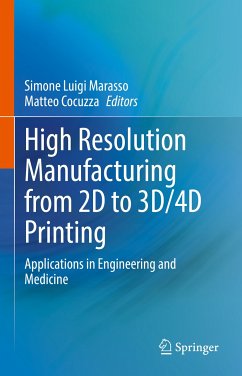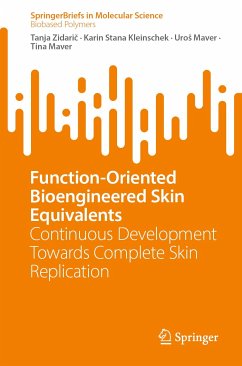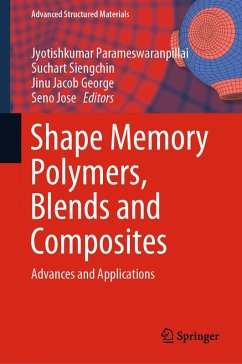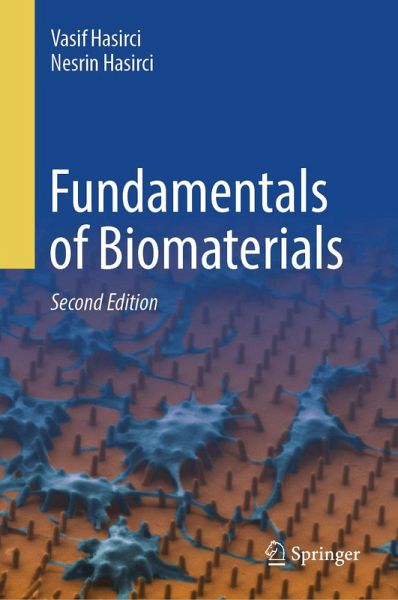
Fundamentals of Biomaterials (eBook, PDF)
Versandkostenfrei!
Sofort per Download lieferbar
88,95 €
inkl. MwSt.
Weitere Ausgaben:

PAYBACK Punkte
44 °P sammeln!
This comprehensive and engaging text, now in an expanded second edition, is meant for advanced undergraduate and graduate students and covers the fundamental relationships between the structure and properties of materials and biological tissues. The successful integration of material and biological properties, shape, and architecture to engineer a wide range of optimized designs for specific functions is the ultimate aim of a biomaterials scientist. Relevant examples illustrate the intrinsic and tailored properties of metallic, ceramic, polymeric, carbon-derived, naturally-derived, and composi...
This comprehensive and engaging text, now in an expanded second edition, is meant for advanced undergraduate and graduate students and covers the fundamental relationships between the structure and properties of materials and biological tissues. The successful integration of material and biological properties, shape, and architecture to engineer a wide range of optimized designs for specific functions is the ultimate aim of a biomaterials scientist. Relevant examples illustrate the intrinsic and tailored properties of metallic, ceramic, polymeric, carbon-derived, naturally-derived, and composite biomaterials. Information about translation of biomaterials to clinical medical devices is included.
Fundamentals of Biomaterials, 2nd Ed. is written in a single voice, ensuring clarity and continuity of the text and content. As a result, the reader will be gradually familiarized with the field, starting with materials and their basic properties and eventually leading to critical interactions with the host environment. The authors also present new topics such as tissue engineering, guided tissue regeneration, and nano- and micro- architecture of biomaterial surfaces. Full of important medical and biological definitions, essential applications, detailed examples, and interesting chapter-ending summaries, this book serves as an incredibly useful teaching text and as a modern introduction to biomaterials research.
This second edition includes new chapters on the historical development of biomaterials, transplants and implants, characterization techniques, and biomedical device production, as well as an expanded chapter on human biology that now also includes biological systems (cardiovascular, respiratory, digestive, nervous, etc.), plus much more.
Fundamentals of Biomaterials, 2nd Ed. is written in a single voice, ensuring clarity and continuity of the text and content. As a result, the reader will be gradually familiarized with the field, starting with materials and their basic properties and eventually leading to critical interactions with the host environment. The authors also present new topics such as tissue engineering, guided tissue regeneration, and nano- and micro- architecture of biomaterial surfaces. Full of important medical and biological definitions, essential applications, detailed examples, and interesting chapter-ending summaries, this book serves as an incredibly useful teaching text and as a modern introduction to biomaterials research.
This second edition includes new chapters on the historical development of biomaterials, transplants and implants, characterization techniques, and biomedical device production, as well as an expanded chapter on human biology that now also includes biological systems (cardiovascular, respiratory, digestive, nervous, etc.), plus much more.
Dieser Download kann aus rechtlichen Gründen nur mit Rechnungsadresse in A, B, BG, CY, CZ, D, DK, EW, E, FIN, F, GR, HR, H, IRL, I, LT, L, LR, M, NL, PL, P, R, S, SLO, SK ausgeliefert werden.




